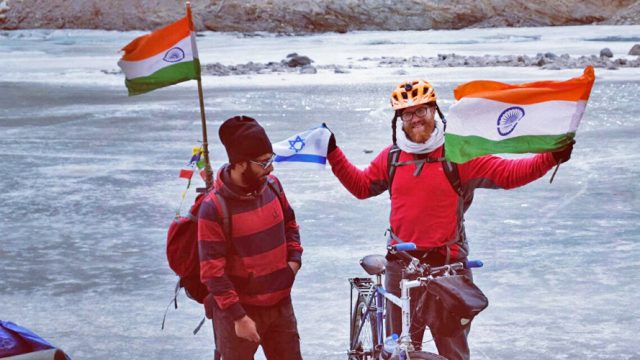OT: What does travel mean to you?
Keki N. Daruwalla: A new place, a different monument
OT: Does poetry inspire you to travel? Or vice versa?
Keki N. Daruwalla: Neither. Travel often meant a poem, like my visit to Amroha or the Baltic islands. Not much now. A travel poem can’t be a sketch alone. It needs a twist at the end, or a metaphor to back it, to keep it afloat.
OT: Talk a bit about your new short-story collection, Daniell Comes to Judgment, by Niyogi Books.
Keki N. Daruwalla: It started off with a story resulting from my reading of the 18th-century painter, Daniell, and his brother. It is a story about the art world today, the soaring prices—and it is also a story about floods, the vulnerability of single women and even sex. A story doesn’t need to have a beginning, a middle and an end. It can be about a mood. That’s what I have tried to portray in my latest book. There are old stories too. There’s even a story about triple talaq, written before its time, if one can say so.
OT: You’ve been called a landscape poet. Which landscapes have had an impact on your poetry?
Keki N. Daruwalla: All landscapes have had an effect on my poetry, starting with the hills—Garhwal and Kumaon, the stark landscape of Joshimath. But the lovely Ranikhet did not lead to a poem. However, the intense blue of Verinag and also the blue of Sheshnag glacier did lead to poems. In fiction, I like to describe a place, a street, a scarecrow by a village pond.
OT: A travel anecdote that you wish to share?
Keki N. Daruwalla: In 1989, I drove around Europe with my family. Coming out of Naples in Italy, we lost our way a bit and I told my daughter Anaheita who was sitting beside me with a map that “we seem to be entering mafia country”. Right enough, as we stopped at a wayside gas station, a boy smashed his fist through the window and snatched my wife’s purse, before riding away. We reported to the police, patched up the window and proceeded to Rome. I wrote a jingle later:
A lovely place is Napoli
Of rolling hill and sun and sea
And also of the Mafiosi.
OT: Where is your poetry appreciated the most?
Keki N. Daruwalla: I find the audience more receptive at book launches at Kitabkhana, Mumbai.
OT: What’s your idea of an ideal vacation?
Keki N. Daruwalla: Firstly, the family should be with you. Secondly, you shouldn’t be running frenetically from site to site, lake to river and boat-ride. You should have a decent book with you, and a pad to scribble something on.
Keki N. Daruwalla
people
poet




